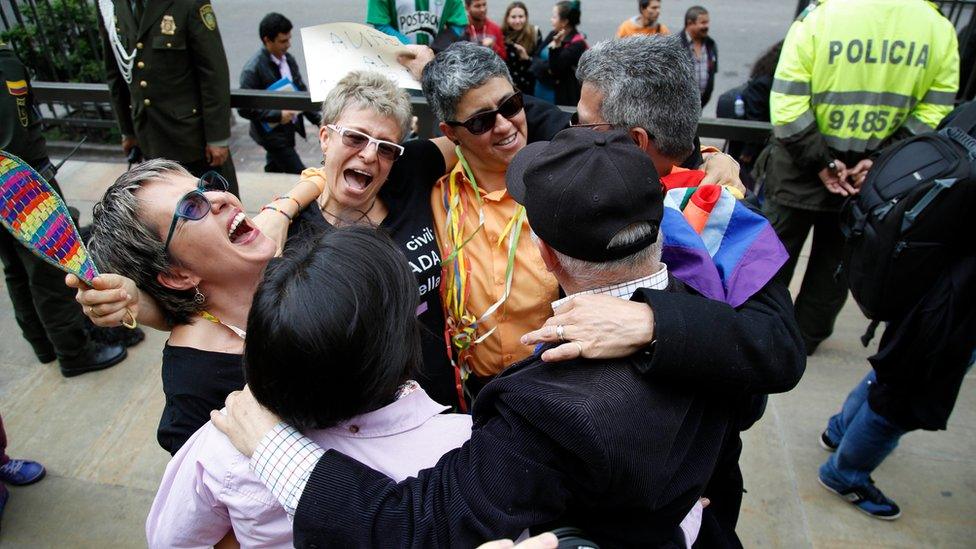'Non-heterosexuals' message causes stir in Colombia
- Published
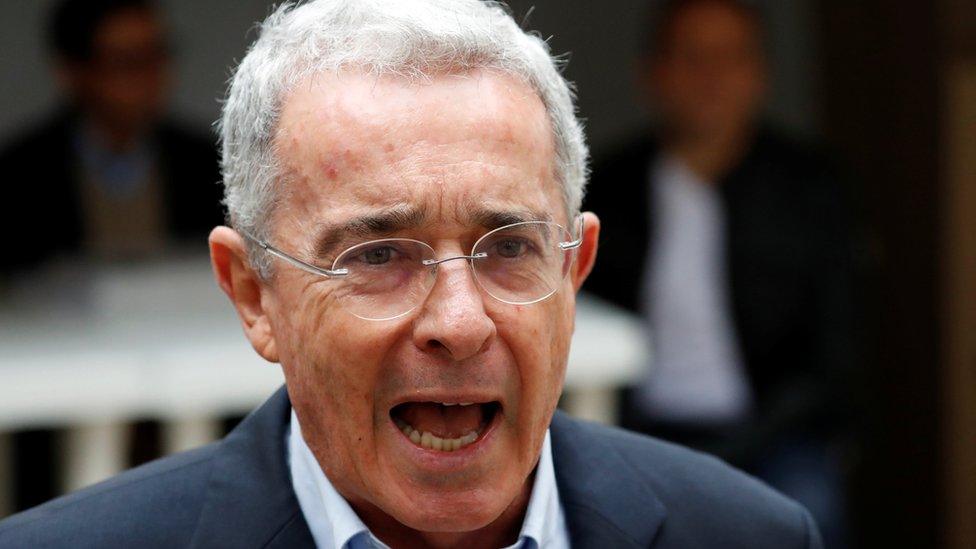
Former president Uribe encouraged gay people to vote for his political protégé
A video posted by Colombia's former president Alvaro Uribe Velez has been widely criticised on social media after he described the LGBTI community in Colombia as "non-heterosexuals".
Mr Uribe posted a video message on his Facebook and Twitter accounts on Thursday night, encouraging gay people to vote for Ivan Duque, external, a conservative presidential candidate, and Marta Lucia Ramirez, Mr Duque's vice-president pick, in the second round of the Colombian presidential election.
In his video, Mr Uribe, who is still hugely influential, was flanked by a group of people with a rainbow flag at the back.
Allow X content?
This article contains content provided by X. We ask for your permission before anything is loaded, as they may be using cookies and other technologies. You may want to read X’s cookie policy, external and privacy policy, external before accepting. To view this content choose ‘accept and continue’.
He said that, from a personal standpoint and because of his political responsibility in the Centro Democratico party, he wanted to express his support for marriage rights, adoption rights, abortion rights and rights of faith.
However, his use of the expression "non-heterosexuals" has upset Colombians.
You may be also interested in:
At time of writing, the hashtag #ColombianosNoHeterosexuales, external has been used more than 18,000 times on Twitter. Mr Uribe's video is also posted on his official Facebook page and has been shared over 1,000 times.
"What a joy to belong to the non-Uribe Colombians", wrote Daniel Samper Ospina, a journalist and YouTuber, mocking the expression.
Twitter user Daniela used a variation of the 'I'm Straight / I'm Gay' survey meme, external to suggest a new option on questionnaires:
Allow X content?
This article contains content provided by X. We ask for your permission before anything is loaded, as they may be using cookies and other technologies. You may want to read X’s cookie policy, external and privacy policy, external before accepting. To view this content choose ‘accept and continue’.
And @ATDUALIPA compared popular expressions for LGBT people around Latin America:
Allow X content?
This article contains content provided by X. We ask for your permission before anything is loaded, as they may be using cookies and other technologies. You may want to read X’s cookie policy, external and privacy policy, external before accepting. To view this content choose ‘accept and continue’.
Some Colombian media outlets weighed in on the controversy caused by Mr Uribe's use of the term "non-heterosexuals", leading to criticism of Mr Duque, a political protégé of Mr Uribe.
"It is known by the majority of Colombian citizens that ex-president Alvaro Uribe Velez has formed around the presidential candidacy of Ivan Duque a coalition that gathers all the supporters and defenders of ideas that are backward for society and damaging for the future of the country," Colombian digital magazine Voces said in a story on 31 May.
Reported in the Confidenciales section of Semana magazine's website, external, former vice-presidential candidate Claudia Lopez also chided Mr Uribe.
"You don't call this the 'non-heterosexual' population," she said. "I would invite the ex-president and all Colombians to call things by their name... There is no need to try to stigmatise them, first by not calling them by their name".
Mr Uribe later tweeted to clarify his remarks, external. He said "non-heterosexuals" was "the self-denomination" of a group which had written a letter of support for his party's presidential candidate, and "by request of its members this term has been used."
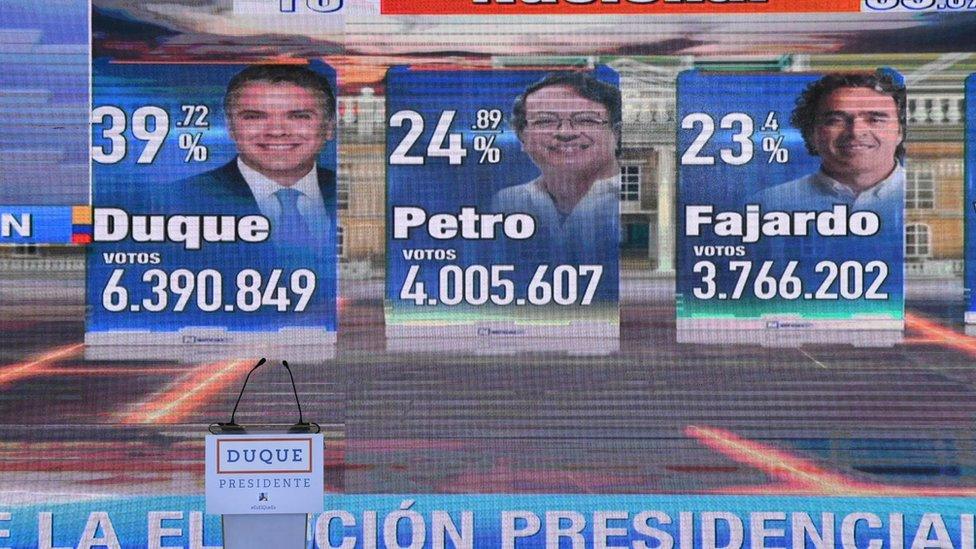
Colombia will go to the polls again on 17 June
The second round of the presidential election will be held on 17 June between Mr Duque and left-winger Gustavo Petro, a former guerrilla and ex-mayor of Bogota, after polling on 27 May failed to produce a clear winner.
Colombia legalised same-sex marriage in 2016 and also allows trans people to change their name and gender marker. Equal rights advocates fear progressive LGBTI laws could be shelved or rolled back by conservative politicians.
- Published28 May 2018
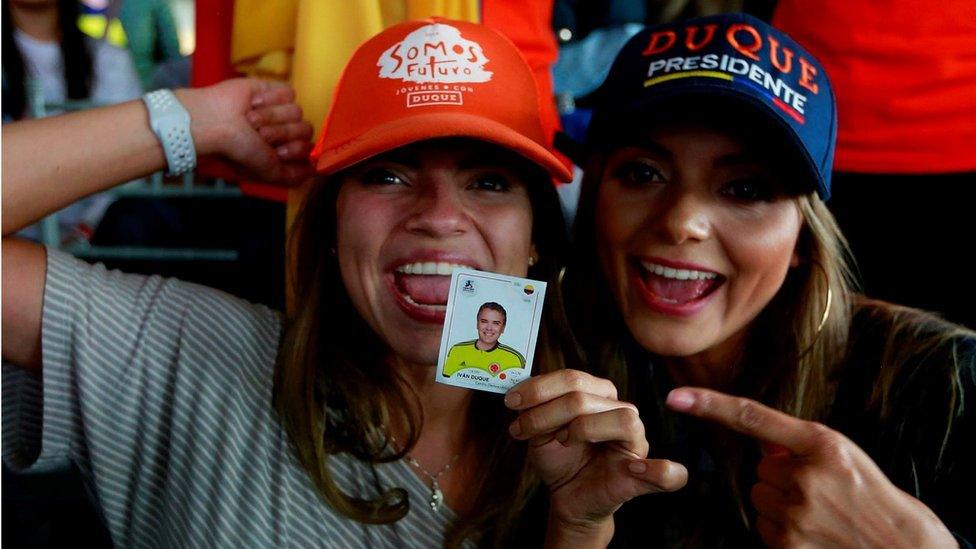
- Published20 May 2018
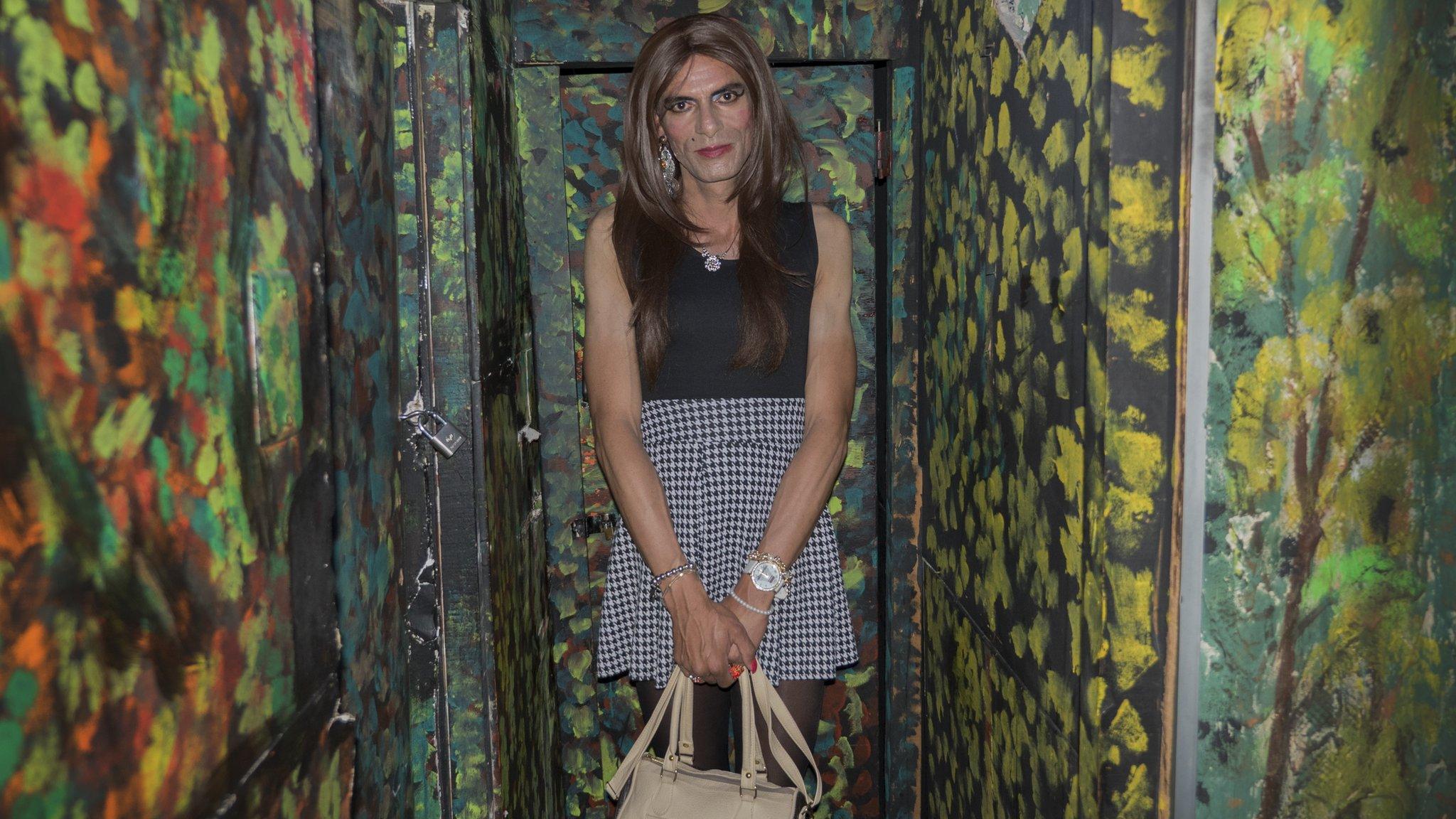
- Published27 March 2018
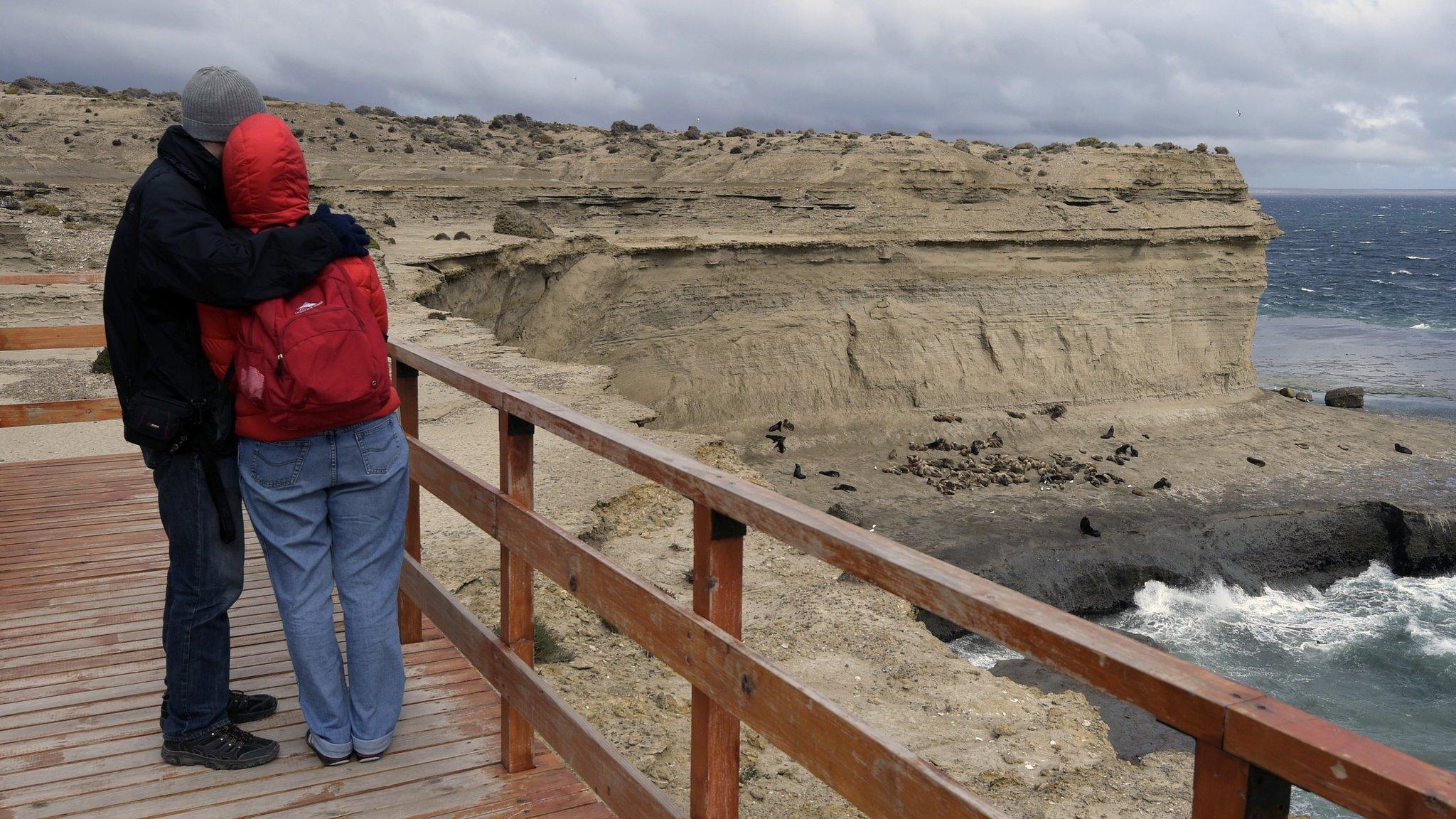
- Published29 April 2016
